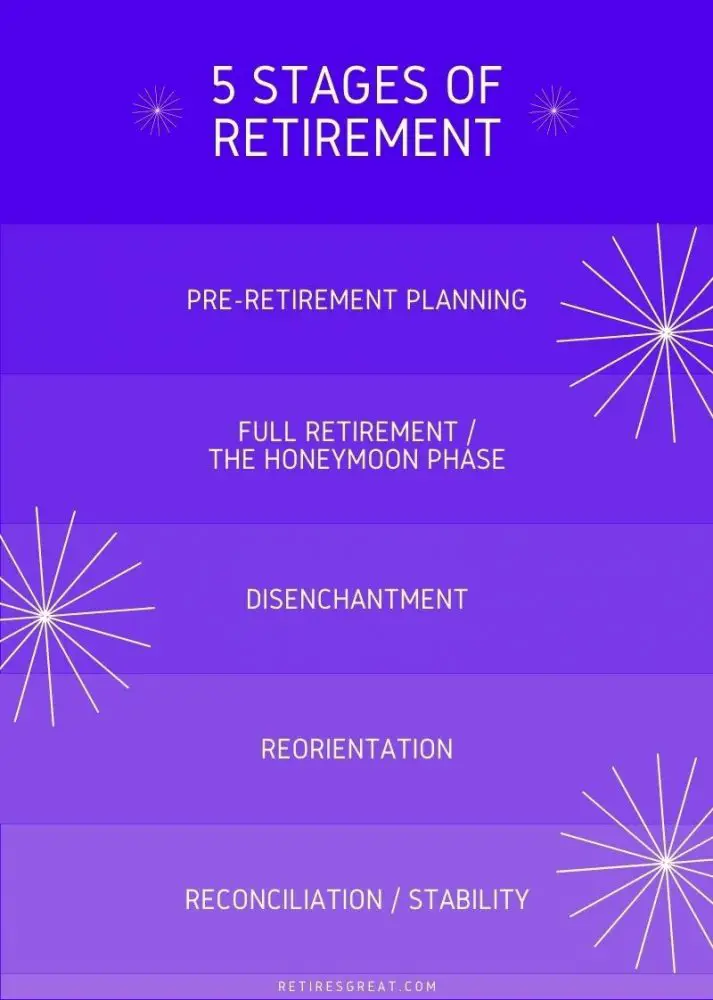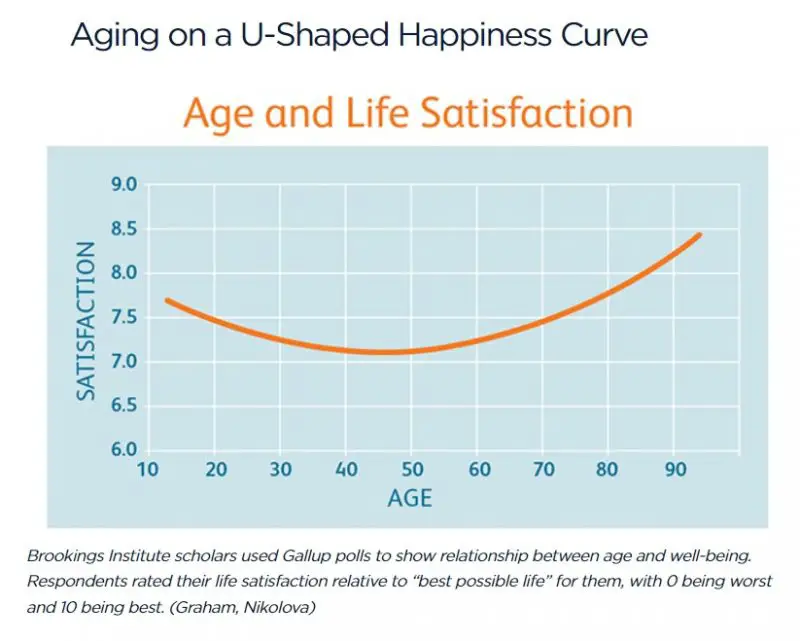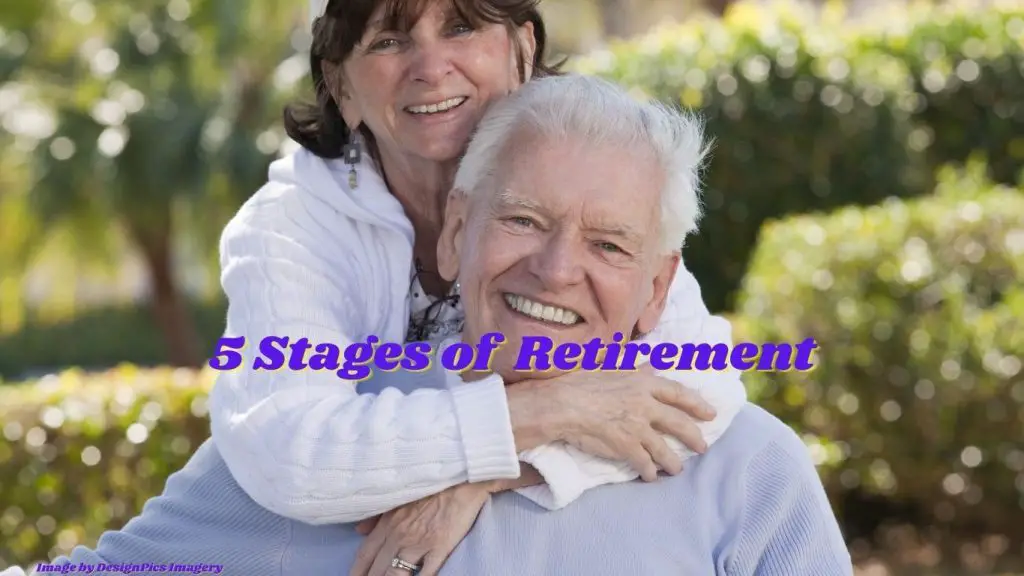Retirement is a major crossroads signifying the passage from decades of work to the next chapter of life. Each person’s journey will be slightly different, yet characterized by 5 distinct phases.
The five stages of retirement consist of:

1. Pre-Retirement Planning
Think back to the many trade-offs made throughout your working years.
These might include the first home purchase, raising a family, a career change or dealing with medical expenses. And, hopefully putting enough aside for retirement. In no way shape or form has it been easy.
And, understandably, many folks are behind on their savings. By the time they’re in their mid forties, retirement savings begin to take priority and they’re playing catch up.
Generally, the five to ten years prior to their planned retirement date, is when most people get serious. They hire a financial advisor, max out their contributions and run everything through a retirement calculator.
Now, they can figure out if they’re on track and when they can afford to retire. Less than 40% of people actually have a retirement plan. And, those who do, focus almost exclusively on the financial aspects.
Our article how to write a retirement plan provides a comprehensive framework. To quote the famous words of Benjamin Franklin, “If you fail to plan, you plan to fail”.
This will become more obvious when we get to the disenchantment stage of retirement. Without a doubt, financial preparation is crucial. However, there’re many other aspects which also need to be considered.
The Softer Side of Retirement
The “softer side of retirement” is about other aspects which will impact quality of life. These can include:
Other articles we’ve written which may be of interest:
Why Should Spouses Retire Together?
Why You Shouldn’t Retire When Your Spouse Does
How to Cope with the Loss of Work Friends After Retirement
The key takeaway is there’s much more to pre-retirement planning than just the finances.
2. Full Retirement / The Honeymoon Phase
By far, this is the most exciting of the five stages of retirement. It’s a big deal and cause for celebration!
All those years of hard work have paid off and now you can finally relax and slow down. This creates a sense of euphoria, hence the term the honeymoon phase.
When you think about it, ever since we were kids, we’ve been told what to do. Whether it’s a parent, a teacher or a boss; we’ve always had to report to someone. The honeymoon phase is the first time in life when we can do as we please!
The honeymoon period can be short lived lasting mere days or last a couple of years. The best way of describing it is like an extended vacation. And, eventually the novelty begins to wear thin.
At this point, usually boredom begins to set in or spending needs to be reigned in. Then a more sustainable daily routine needs to be found. This is easier said than done and can usher in feelings of disenchantment.
What Do Retirees Do?
This is the liberation of new found freedom of time. Alarm clocks get turned off and bedtime is when you’re sleepy. Every day feels like the weekend, and the scary part, it’s easy to lose track of what day it is.
Most new retirees catch up on those things they never had enough time for.
Re-connecting with friends and family, travel or undertaking a long-delayed project such as a home renovation. It can, also, be the time to lose yourself in your favorite pastime.
The first ten years or so of retirement are also referred to as the “go-go” years. While still young and active, now’s the time to travel and see the world. As a result, spending tends to be higher than later in life (excluding potential healthcare expenses).
3. Disenchantment
Everyone has expectations and many retirees experience a sense of disappointment as those heady days of the honeymoon period wind down.
After more years of scrimping and saving than anyone cares to remember, they somehow thought everything would be peaches and cream.
Part of the problem is all the advertising and hype portraying retirees having the time of their lives. Perhaps on a magnificent cruise ship or luxuriating in their new beach home. For the average person, such a lifestyle isn’t sustainable or even fulfilling.
The real disenchantment begins when every day starts to feel the same. With nothing interesting to look forward, it’s quite common to feel bored and restless. This is usually enough to spur most folks into moving forward into the reorientation phase.
Like the honeymoon phase, this can be short-lived or drag on for years if individuals get stuck.
When People Get Stuck
Sadly, some folks get stuck at this point which can lead to the darker side of retirement. Often there are contributing factors such as health issues, the loss of a partner or other issues. This can result negative outcomes such as:
These relate to mental health concerns and could require professional help and counseling.
4. Reorientation
This might be one of the most difficult of the five stages of retirement.
After the honeymoon phase, most folks have checked off all the stuff they wanted to do. Now, they’re at a bit of a loss moving forward. They’ve moved through the disenchantment phase, yet struggling with what motivates them and feels fulfilling.
Further complicating matters, most couple find themselves spending far more time together than ever before. This can strain even the best of relationships.
Our article, common marriage problems after retirement, sheds light on how retirement changes things.
Getting Over the Hump
More than anything else, it requires getting to know thyself and determining those things important to you. Another way of looking at it, what’s your reason for waking up? A brand-new day and hopefully something to look forward to.
Almost everyone struggles with this and our article, the ultimate guide on things to do when retired, shares fresh perspectives on this. More often than not, it’s a trial-and-error process until you find something meaningful.
Likewise, it’s also the time to strengthen and expand your relationships. People matter and are far more important than most of us realize.
5. Reconciliation / Stability
Once in their 80s, most seniors have achieved stability and contentment.
These can, also, be referred to as the “slow-go” years when it becomes preferable to enjoy all the good things surrounding them. Such as visiting friends or having the grandchildren over.
That whirlwind European tour no longer has the same appeal it might have once had. Airline travel is exhausting, the cost of medical insurance prohibitive and the tourist crowds simply overwhelming.
This stage coincides with reduced spending and a more relaxed lifestyle. Instead of excitement and adventure, stability and a regular routine are desired.
It could, also, reflect a decline in physical energy, increased health concerns and dwindling finances.
Sign Up for A Course
Absolutely no one looks forward to getting old!
In spite of this, studies suggest happiness increases with age. According to Kaiser Permanente and the following chart, life satisfaction is lowest by our late 40’s.
Henceforth, it steadily increases throughout the remainder of life. Remarkably, the older we get, the more content and happier we become.

It’s a paradox as aging is accompanied with a general physical decline and increased risk of health issues. Not something I want to embrace and seems completely counter intuitive.
However, we’re all going to get older which is better than the alternative. With age comes acceptance and, one might argue, a different perspective on life. What seemed important in our younger years, now pales in significance.
Closing Thoughts on the Five Stages of Retirement
Retirement is a major life changing event with an abundance of information on the various stages. My belief is it should be viewed as a journey, in its entirety. Obviously, it will be slightly different for each person as we progress at our own pace.
I also firmly believe these can and should be the best years of life. Achieving this requires a positive mindset, embracing change and making the most of each day to have a great retirement.

